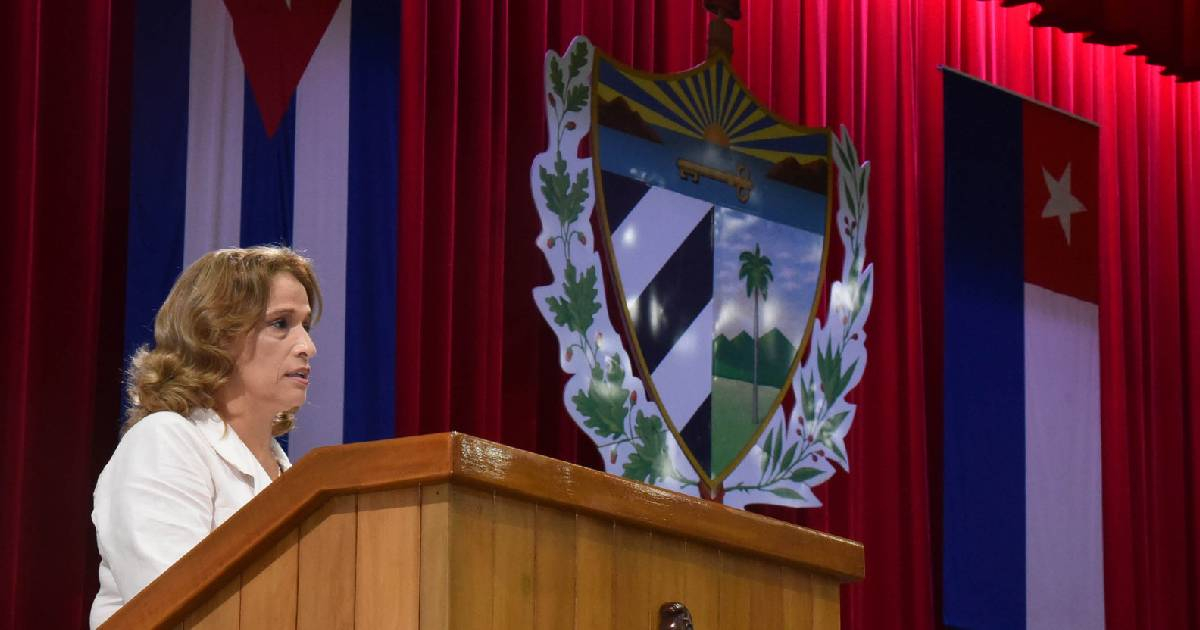
The Cuban government confirmed the persistent disruption in the distribution of the products from the regulated food basket sold to its population, which, for years, has not arrived complete or suffers from constant delays.
“2023 ended with impacts on beans, sugar, oil, coffee, chicken, meat products, eggs, and domestic fuels, which continued into the first quarter of 2024,” stated a report from the official digital site Cubadebate that presented the “accountability” of the Ministry of Domestic Trade before the National Assembly of People's Power (ANPP).
A report presented to Cuban deputies by the minister of that governmental entity, Betsy Díaz Velázquez, "acknowledges that there is a fragmentation in the deliveries to the retail network due to financial difficulties that prevent achieving the necessary coverage and the timely reception of products." This is reflected on the Cuban table due to the shortage of products that the government promises month after month but fails to deliver.
This shortage has increased the control that the regime has over various products such as hygiene items and cigarettes, as well as some "selected from the store chains and other items by decision of the local authorities," they point out.
Another point the minister referred to, and in which she indicated responsibilities for shortages, was the occurrence of thefts.
"The damages focus on rice, beans, sugar, coffee, cigarettes, pasta, and powdered milk," he said. He pointed out Pinar del Río, Havana, Las Tunas, Holguín, and Guantánamo as the provinces where the most thefts in warehouses occur.
When delivering the accountability report of MINCIN to Esteban Lazo Hernández, president of the ANPP, which was debated among the deputies during this ordinary session period, Minister Díaz Velázquez acknowledged that her ministry had established "certain commitments that today we will say are not all fulfilled, but well... we have the rest of the year to accomplish them."
Efforts are being made for the "improvement of domestic trade in Cuba," "permanent dissatisfaction" is acknowledged, along with "limitations of physical fuel," yet "the effort being made to ensure that essential products reach the people" is applauded. This is how the accountability session was projected before the deputies of the Cuban regime.
"The ships that are there and cannot be opened, the distribution that is not finished, the transfers, in short. The workers continue to make an effort distributing without electricity, when the truck appears, using alternative means," the minister stammered at the meeting, the excerpt of which was released by the National Television News.
At the Palace of Conventions in Havana, Cuban Prime Minister Manuel Marrero Cruz stated during the work of the Services Attention Commission, prior to the third ordinary session of the tenth legislature, that the regulated basket, "despite its insufficiencies, is a conquest that will be maintained."
The leader explained that "almost all the products in the family basket need to be imported, and this is the priority when allocating foreign currency for investment."
However, reports of delays and shortages in the standard basket continue to be seen on social media.
It is worth remembering that at the beginning of July, the residents of Holguín received the rice shortage that the government owed them from June. A similar situation was experienced throughout the eastern region of the island.
Since 2022, the dependence on imports to ensure supplies has increased due to the decrease in domestic production of rice, beans, eggs, milk, and other foods.
What do you think?
SEE COMMENTS (4)Filed under: